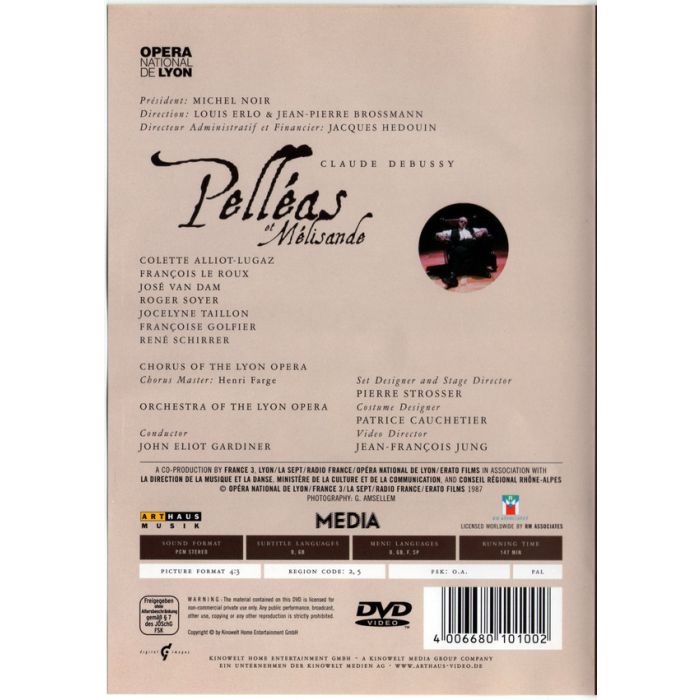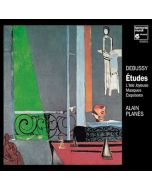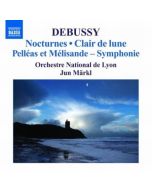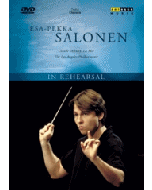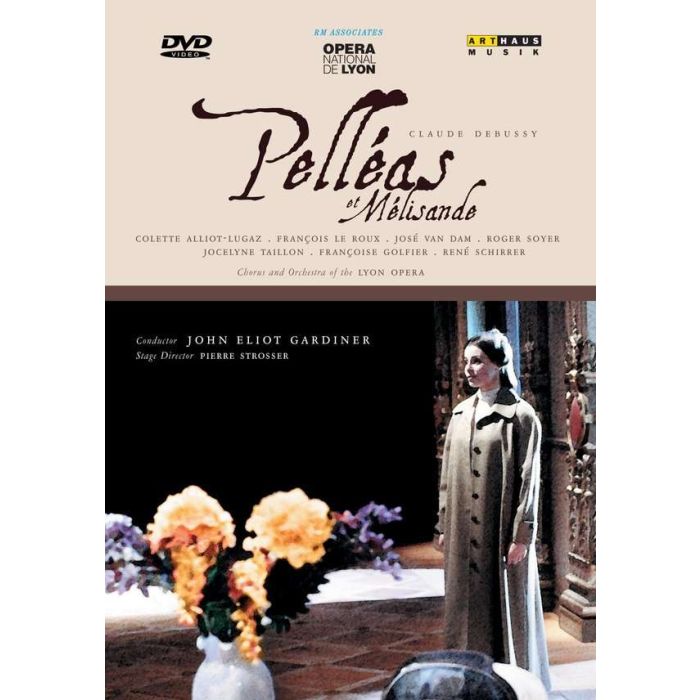
(Produkt nie został jeszcze oceniony)
kompozytor
Debussy, Claude
tytuł
Debussy: Palleas & Melisande
wykonawcy
Gardiner, John Eliot, Lyon National Opera Chorus, Lyon National Opera Orchestra, Maeterlinck, Maurice
nr katalogowy
DVD 100100
opis
Debussy's great literary opera, Pelléas et Mélisande, based on Maeterlinck's dramatic reading of the classic tale of sibling rivalry, was first performed in 1902. This 1988 production was recorded at the Opéra National de Lyon, swapping a traditional medieval forest setting for a fin de siècle Castle Allemonde in which the characters wander through vast, shadowy and empty halls. The cast features Colette Alliott-Lugaz as a mercurial Mélisande and Francois le Roux as a Byronic Pelléas, with José van Dam as his brother Golaud, the austere fly in the ointment. • Little actually happens on stage. The characters circle each other, describing events and emotions which they only half understand. Often, their recitative is introspective rather than a means of external communication. The drama is played out in the landscape of the mind, punctuated and emphasised by Debussy's remarkable, brooding and atmospheric score. At times, it becomes the swirling stuff of nightmare, an aspect to which John Eliot Gardiner's assured conducting pays close attention. The opera might come to its inevitable end, but there is a strong sense that these ghost-like figures are doomed to repeat their tragic tale endlessly. Uncomfortably haunting stuff, with moments of breathtaking beautyDebussy's great literary opera, Pelléas et Mélisande, based on Maeterlinck's dramatic reading of the classic tale of sibling rivalry, was first performed in 1902. This 1988 production was recorded at the Opéra National de Lyon, swapping a traditional medieval forest setting for a fin de siècle Castle Allemonde in which the characters wander through vast, shadowy and empty halls. The cast features Colette Alliott-Lugaz as a mercurial Mélisande and Francois le Roux as a Byronic Pelléas, with José van Dam as his brother Golaud, the austere fly in the ointment. • Little actually happens on stage. The characters circle each other, describing events and emotions which they only half understand. Often, their recitative is introspective rather than a means of external communication. The drama is played out in the landscape of the mind, punctuated and emphasised by Debussy's remarkable, brooding and atmospheric score. At times, it becomes the swirling stuff of nightmare, an aspect to which John Eliot Gardiner's assured conducting pays close attention. The opera might come to its inevitable end, but there is a strong sense that these ghost-like figures are doomed to repeat their tragic tale endlessly. Uncomfortably haunting stuff, with moments of breathtaking beauty. • Piers Ford
nośnik
DVD x 1
wydawca
Arthaus
data wydania
12.09.2006
EAN / kod kreskowy
4006680101002
99,00 zł
Produkt dostepny w niewielkiej ilości.
Wysyłka w ciągu 3 dni roboczych
Darmowa wysyłka dla zamówień powyżej 300 zł!
Darmowy kurier dla zamówień powyżej 500 zł!
sprawdź koszty wysyłki